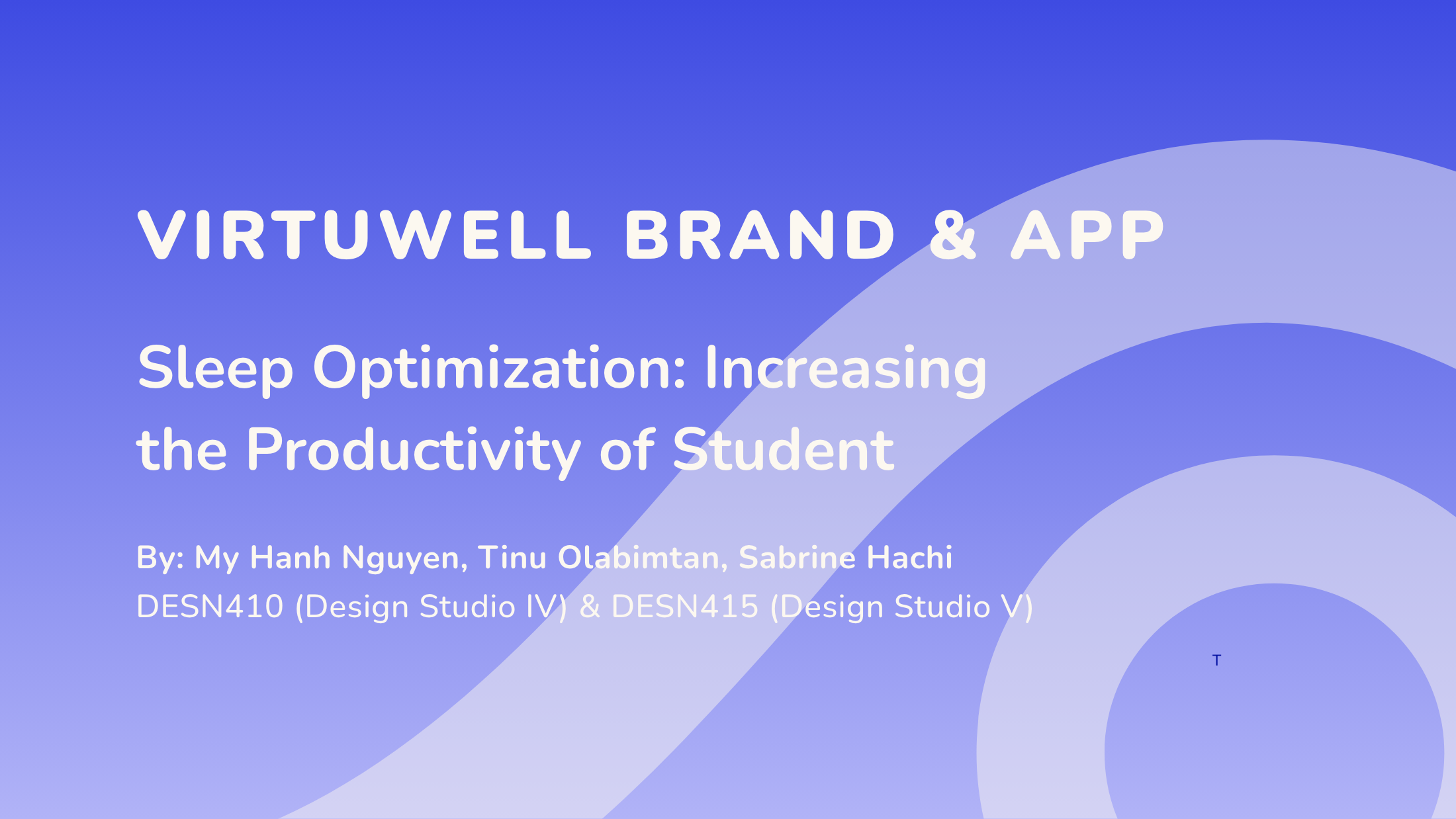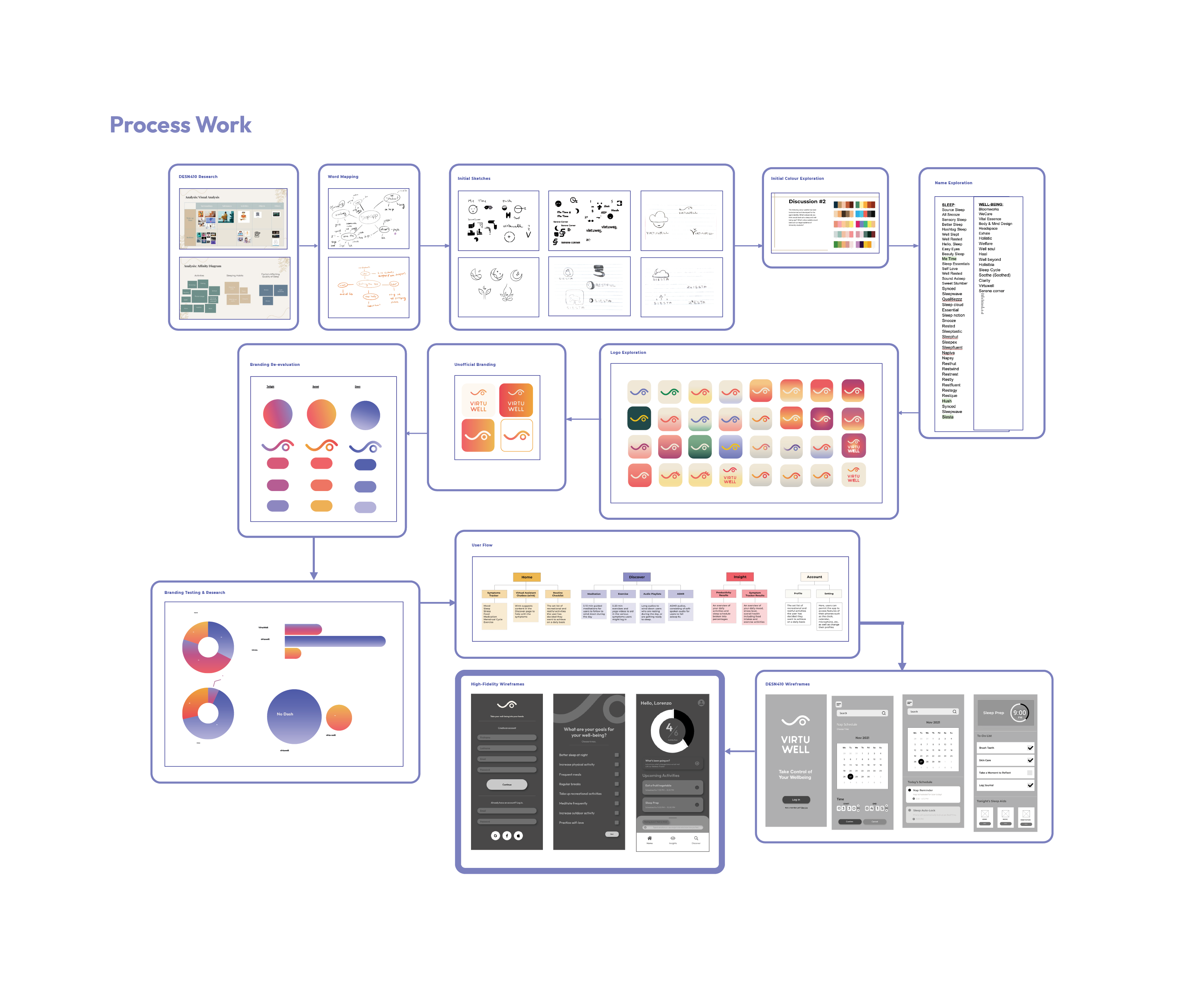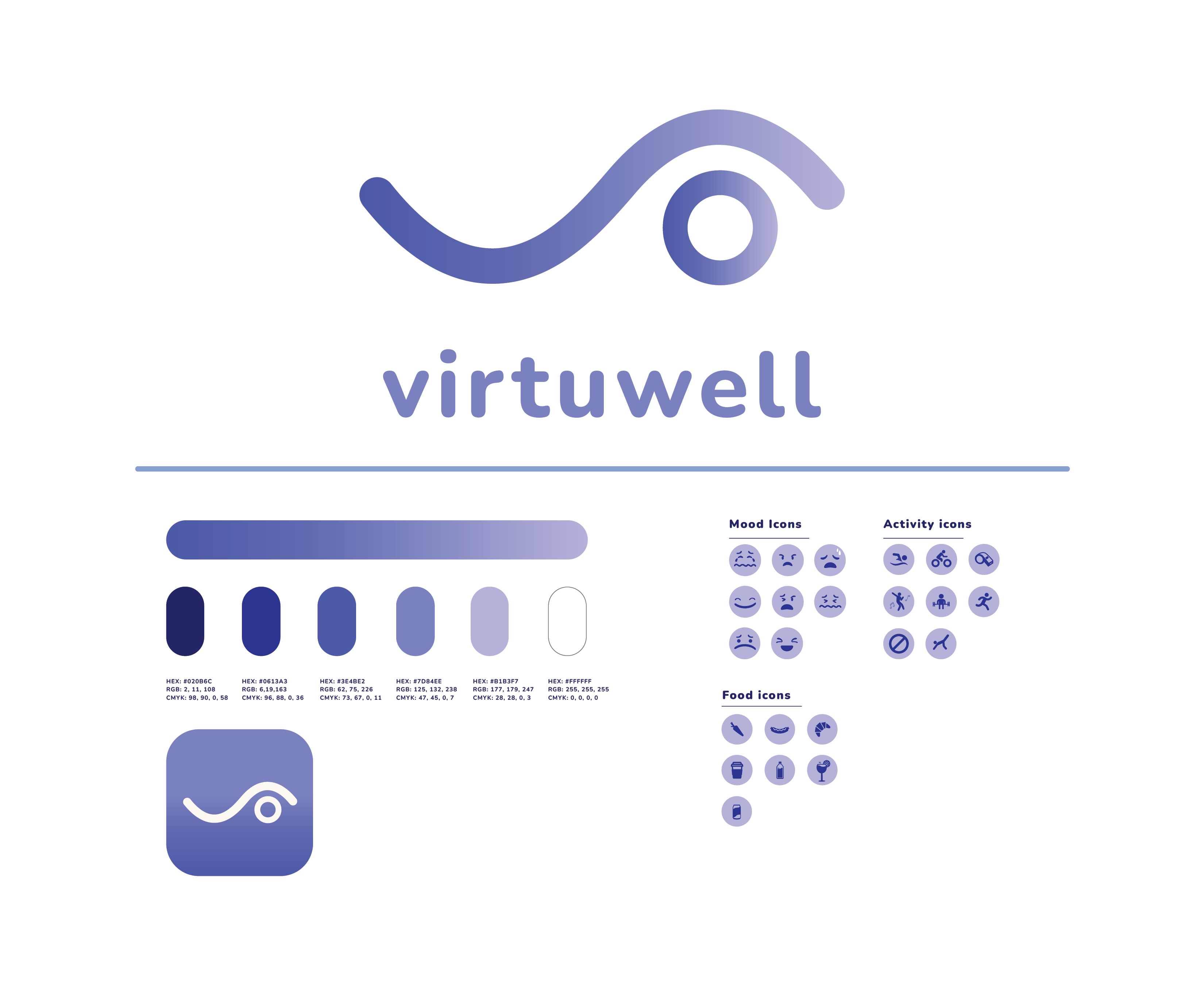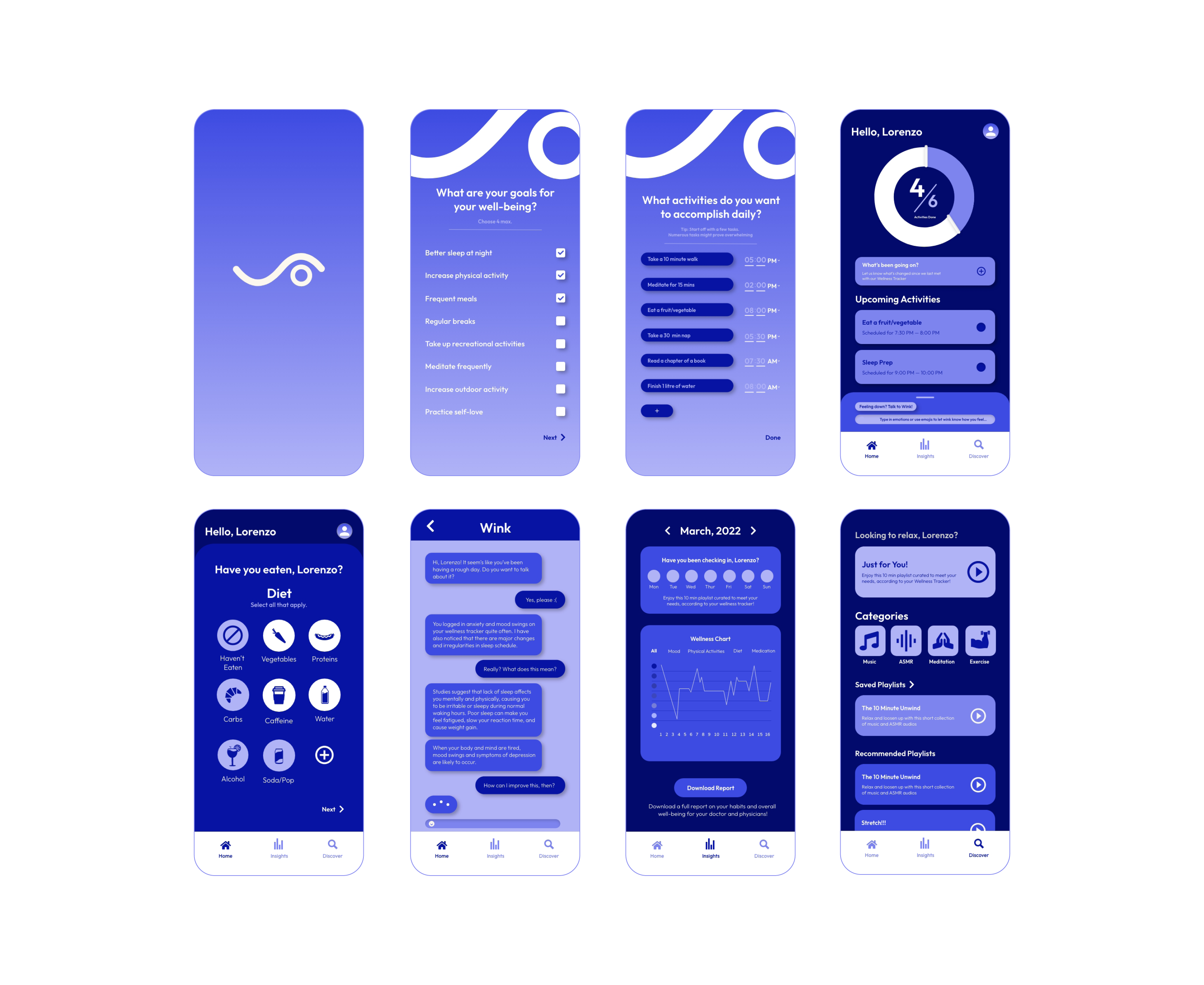In this project, we studied the issue of bad sleep quality in post-secondary students. While many factors contribute to the unrestful state of most students, the primary cause is lousy sleep hygiene, which is caused by several habits and behaviours on the part of the students. As a group, MyHanh Nguyen, Tinu Olabimtan and Sabrine Hachi challenged themselves to find a design solution to the observed problem.
In DESN410, a better understanding of students’ lifestyles concerning sleep quality has been acquired. Further in-depth knowledge of the cyclical relationship between sleep and productivity and their codependent nature resulted in an app that addressed holistic well-being, as opposed to sleep strictly. In DESN415, the team has addressed the user experiential and interactive aspect by creating an application that compels its users to develop good habits that are beneficial to their daily rest.
The branding represents the organized, polished feeling that Virtuwell hopes to bring to its users’ lives. Research shows that aesthetics and functionality drive younger audiences. The logo consists of well-rounded edges and curves that represent ease and fluidity while also keeping the viewer grounded with the presence of the circle. The logo (Wink) represents how the app intends to help its users- with better sleeping habits (the closed eye) and improved daily routines (the open eye).
The app provides a feature to let students maintain proper sleep hygiene and provide tools for optimizing a healthier lifestyle and well-being. It offers a new virtual assistant to help individuals who require emotional support. Virtuwell also has a customizable feature for users to input their own goals, providing a more personal experience. This idea was drawn from research, where participants voiced the importance of a personalized experience in a self-care app.







